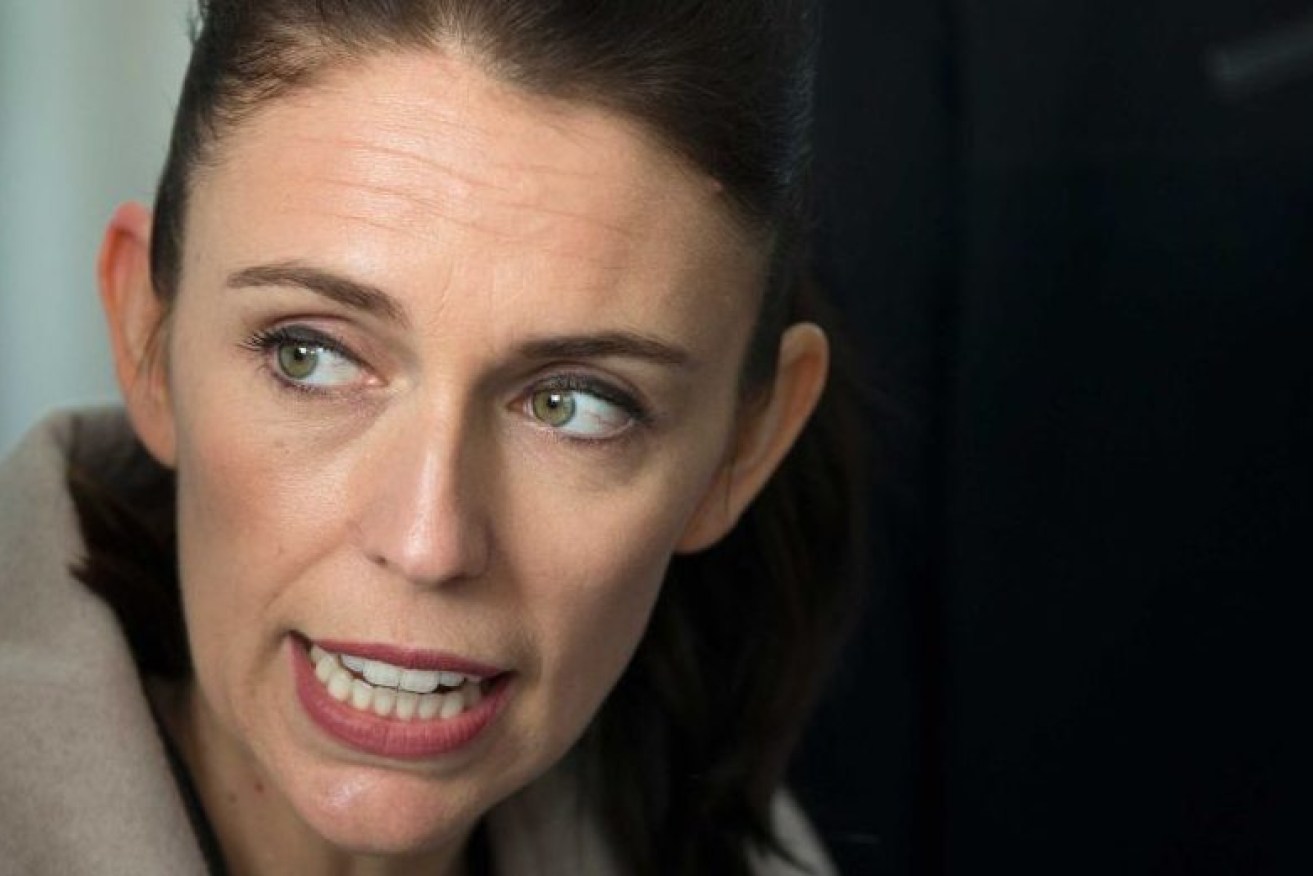Kiwis blaming Sydney for rogue case that punctured their Delta bubble
The genie could be out of the bottle in New Zealand, where one COVID-19 case jumped to a cluster of 10 on Wednesday, the first day of a new nationwide lockdown.

New Zealand PM Jacinda Ardern has struck some heavy political weather as a recession looms. (Photo: AP: Mark Baker, file)
Prime Minister Jacinda Ardern confirmed the arrival of the dreaded Delta strain on Wednesday and a genomic link from the Auckland outbreak to the NSW outbreak.
The lockdown is New Zealand’s first nationwide lockdown since May last year.
Ardern’s government has set the restrictions at NZ’s highest, level four, for at least three days.
Auckland and the Coromandel, where ‘Case A’ travelled while infectious, will spend at least seven days in lockdown.
Some Australian states have also update travel restrictions for NZ.
Tasmania has blocked non-Tasmanians from entering, WA is requiring a fortnight of self-isolation on arrival and SA will quarantine arriving Kiwis, as with other international arrivals.
Director General of Health Ashley Bloomfield said generic modelling suggested the cluster could grow to around “50 and 120 cases”.
Eight of the 10 cases are young people who socialised heavily around Auckland during their likely infectious period – including trips to a nightclub, church and the casino.
“We’re expecting more (cases). Particularly of the age group and demographic,” Ardern said.
Ardern’s government decided on the lockdown on the basis of one new community case, saying new cases meant “level four was the right decision”.
“Our case has originated in Australia. Our job now is to work through how and when it got here,” she said.
“There is more work to be done to help piece together this puzzle … a lot of leads to chase down.”
Case A is a 58-year-old male tradesperson who lives in Devonport, an affluent coastal suburb in North Auckland, who visited a number of homes while infectious.
According to the NZ Herald, one of his co-workers has also contracted the virus.
That co-worker’s flat of four have also tested positive, and two friends.
The flatmates include a 21-year-old female health worker at Auckland Hospital who Dr Bloomfield said “worked four shifts while unknowingly potentially infectious” and a 25-year-old female teacher at Avondale College.
The school’s 2500 pupils and staff have been ordered to isolate and get tested.
Aside from the hospital worker, all were aged below 30 and therefore not yet eligible for the vaccine under New Zealand’s slow rollout.
Auckland Hospital is in “a form of internal lockdown” according to Ms Ardern, who downplayed the risk to the country’s under-resourced health system.
“We’ve had COVID-positive cases in our health workforce before … they’re well versed in these practices,” Ms Ardern said.
On Wednesday night, the health ministry confirmed three new cases.
Two 20-somethings have links to the flatmates, and the third case is a 60-year-old woman with an undisclosed link to the border.
The cases are New Zealand’s first in the community since February; a golden 170-day streak that officials warned would likely end at some point.
The tough-as-nails lockdown requires Kiwis to stay within their household “bubble” and leave the house only for a small number of essential reasons.
Travel is severely limited, schools are closed, and only essential businesses – such as supermarkets, petrol stations and pharmacies, where people must wear masks – are open.
Holidayers have been given 48 hours to get back to their normal place of residence, sparking a frenzy on Air New Zealand flights around the country.
The new cases also shine a light on New Zealand’s poor vaccination rates.
Fewer than one million Kiwis have been fully vaccinated, or just 19 per cent of the population, placing New Zealand outside the world’s top 100 countries for the speed of the vaccine rollout.
That rollout is at least picking up pace: on Tuesday vaccinators gave out 55,688 doses of Pfizer, a record day.












